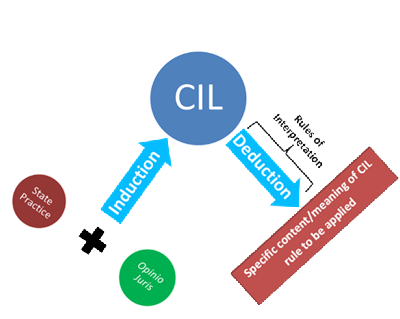About TRICI Law

In international law, interpretation is ubiquitous and is the process through which the interpreter attempts to determine the true meaning of the rule that is being interpreted. Most cases brought before international courts and tribunals deal one way or another with questions of interpretation. This process has been codified in Articles 31-33 of the Vienna Convention on the Law of Treaties (VCLT). Based on these articles, some of the elements that are taken into consideration are the text, and context of the treaty, its object and purpose and the intention of the parties. However, a key issue is that these VCLT articles refer only to interpretation of treaties and not of Customary International Law.
Customary international law (CIL) , in turn, is one of the formal sources of international law and together with treaties are the most important ones, creating binding rules of international law. Some of the most crucial rules of international law started and continue to exist as CIL. The issue with CIL, however, is that it is an unwritten source of international law. Its existence is determined inductively through examination of two elements, state practice and opinio juris (acceptance as law).

Whereas in the application of treaties the process of interpretation is one that always yields a solution, with respect to CIL these rules of interpretation have not been examined. This leads to one of the following two paradoxical scenarios. Either CIL needs to be induced each and every time, by reference to state practice and opinio juris (but this is extremely problematic as it fails to take into account the continued existence, development and manifestation of CIL rules); or, even worse, CIL is asserted by international judges. But assertion, essentially means that international judges create law: they become law-makers and exercise a power to legislate (pouvoir de légiférer). Evidently in the study of CIL there is a critical gap in understanding how CIL can be applied in individual cases once it has been formed. TRICI-Law thus aims to prove that even in the case of this unwritten source, i.e. customary international law (CIL), there are rules of interpretation similar to those that exist for the interpretation of treaties, and to determine the content of these rules.
